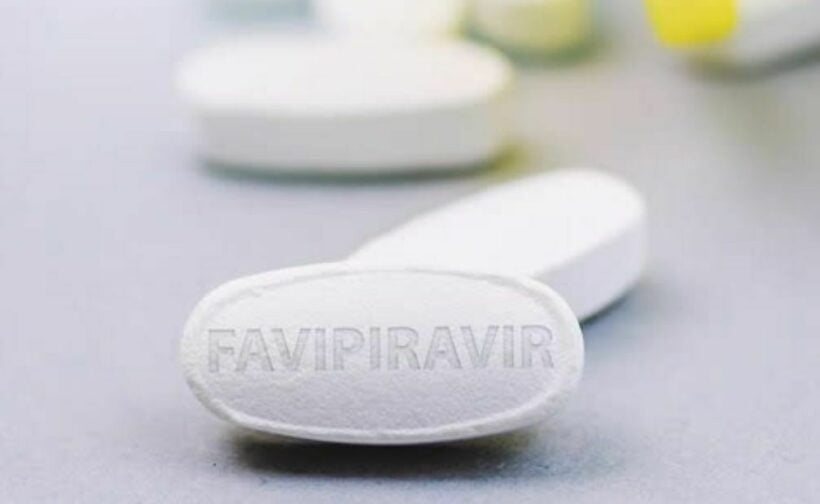Favipiravir: DMS says Thai Covid study contradicts US study

A top respiratory specialist in Thailand spoke out on Friday about a study in the Clinical Infectious Diseases Journal last month saying that not only does the antiviral medication Favipiravir not seem to help fight Covid-19, but it can lead to patients getting gout. Now the Department of Medical Sciences is defending the use of Favipiravir in Thailand to treat coronavirus patients, saying there were flaws in the study.
The research compared data from 599 Covid patients treated with the drug to data from 588 similarly infected patients who received only a placebo pill. Participants were from the US, Brazil, and Mexico. The director-general of the DMS said that about a third of the test subjects were vaccinated or had Covid previously. On the third day of taking Favipiravir, almost all of them experienced Covid symptoms.
But the DMS says that the Favipiravir study failed to take into account that 15% of the volunteers were elderly and 70% were obese. They allege that the researchers didn’t adjust the dosage properly to account for the participants’ weight.
Thailand considers different criteria to rate how serious a Covid infection is, and their Favipiravir testing yielded different results, according to the DMS director-general. The Thai study followed 93 patients who were all without chronic disease and under 60 years old staying in three different hospitals. Only 25% of the participants in Thailand’s study were obese.
In their testing, they measured each patient’s heart rate, respiratory rate, blood oxygen saturation, and other key health indicators. They found that when half the patients received Favipiravir on the first day of visible signs of infection, the entire group never had symptoms worsen beyond mild to moderate conditions.
No formal announcement has been made regarding the future of Favipiravir for use in coronavirus-infected patients in Thailand, but the DMS defence seems to imply no plans to cease its use for now.
SOURCE: Bangkok Post
Latest Thailand News
Follow The Thaiger on Google News:


























